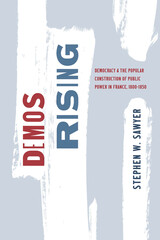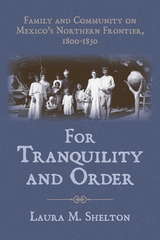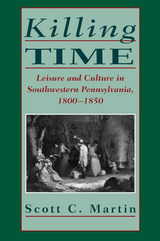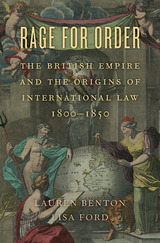
In his previous book, Demos Assembled, historian Stephen W. Sawyer offered a transatlantic account of the birth and transformation of the modern democratic state. In Demos Rising, he presents readers of political history with a prequel whose ambitious claim is that a genuine demos became possible in France only with the development of government regulation and administration. Focusing on democracy as a form of administration rather than as a form of sovereignty allows Sawyer to explore urban planning, work and private enterprise, health administration, and much more, as cornerstones of a self-governing society of equals.
Focusing on the period between 1800 and 1850, Sawyer examines a set of thinkers who debated at length over the material problems of everyday life, sparking calls for political action and social reform in the face of conflict wrought by issues like deforestation, urbanization, health crises, labor relations, industrial capitalism, religious tensions, and imperial expansion. The solutions to these problems, Sawyer argues, were sought and sometimes found, not through elections, as one might assume, but rather through the “care for all” promised by modern administrative power, regulatory intervention, and social welfare programs. By studying this profound transformation in governance, the book wagers, we can better understand the origin and meaning of democracy when events in our own time have thrown the concept into doubt.

Laura Shelton has plumbed the legal archives of early Sonora to reveal the extent to which both court officials and quarreling relatives imagined connections between gender hierarchies and civilized order. As she describes how the region’s nascent legal system became the institution through which spouses, parents, children, employers, and servants settled disputes over everything from custody to assault to debt, she reveals how these daily encounters between men and women in the local courts contributed to the formation of republican governance on Mexico’s northwestern frontier.
Through an analysis of some 700 civil and criminal trial records—along with census data, military reports, church records, and other sources—Shelton describes how courtroom encounters were conditioned by an Iberian legal legacy; brutal ethnic violence; emerging liberal ideas about trade, citizenship, and property rights; and a growing recognition that honor—buenas costumbres—was dependent more on conduct than on bloodline. For Tranquility and Order offers new insight into a legal system too often characterized as inept as it provides a unique gender analysis of family relations on the frontier.

Scott C. Martin examines leisure as a “contested cultural space” in which nineteenth-century Americans articulated and developed ideas about ethnicity, class, gender, and community. This new perspective demonstrates how leisure and sociability mediated the transition from an agricultural to an industrial society. Martin argues persuasively that southwestern Pennsylvanians used leisure activities to create identities and define values in a society being transformed by market expansion. The transportation revolution brought new commercial entertainments and recreational opportunities but also fragmented and privatized customary patterns of communal leisure.
By using leisure as a window on the rapid changes sweeping through the region, Martin shows how southwestern Pennsylvanians used voluntary associations, private parties, and public gatherings to construct social identities better suited to their altered circumstances. The prosperous middle class devised amusements to distinguish them from workers who, in turn, resisted reformers’ attempts to constrain their use of free time. Ethnic and racial minorities used holiday observances and traditional celebrations to define their place in American society, while women tested the boundaries of the domestic sphere through participation in church fairs, commercial recreation, and other leisure activities.
This study illuminates the cultural history of the region and offers broader insights into perceptions of free time, leisure, and community in antebellum America.

International law burst on the scene as a new field in the late nineteenth century. Where did it come from? Rage for Order finds the origins of international law in empires—especially in the British Empire’s sprawling efforts to refashion the imperial constitution and use it to order the world in the early part of that century.
“Rage for Order is a book of exceptional range and insight. Its successes are numerous. At a time when questions of law and legalism are attracting more and more attention from historians of 19th-century Britain and its empire, but still tend to be considered within very specific contexts, its sweep and ambition are particularly welcome…Rage for Order is a book that deserves to have major implications both for international legal history, and for the history of modern imperialism.”
—Alex Middleton, Reviews in History
“Rage for Order offers a fresh account of nineteenth-century global order that takes us beyond worn liberal and post-colonial narratives into a new and more adventurous terrain.”
—Jens Bartelson, Australian Historical Studies

This important study of Ponce, a major sugar-producing district in Puerto Rico, examines in detail the processes by which a predominantly peasant economy an society was transformed into a plantation system. Scarano’s work, one of the first full investigations into Puerto Rico’s nineteenth-century economic history, dispels the long-held belief that slavery was an inconsequential factor in this society; indeed, he finds that the new plantation system was fully dependent on African slave labor, and that the initial stimuli for economic change came from immigrants.
READERS
Browse our collection.
PUBLISHERS
See BiblioVault's publisher services.
STUDENT SERVICES
Files for college accessibility offices.
UChicago Accessibility Resources
home | accessibility | search | about | contact us
BiblioVault ® 2001 - 2024
The University of Chicago Press









